Available 24/7
Available 24/7
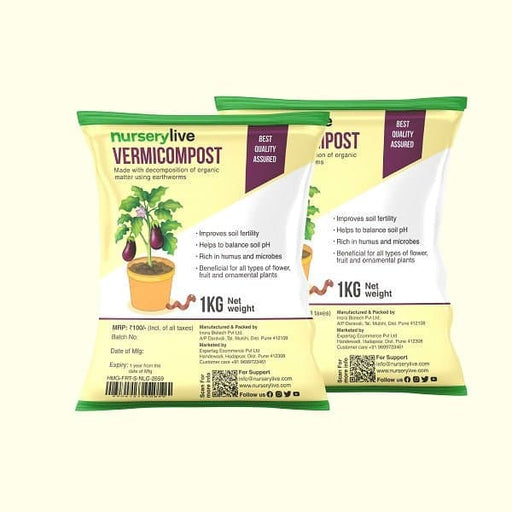 Save 11%
Save 11%
Vermicompost - 1 kg (Set of 2) Enhance your gardening experience with our premium Vermicompost, available in a convenient set of two 1 kg ...
View full details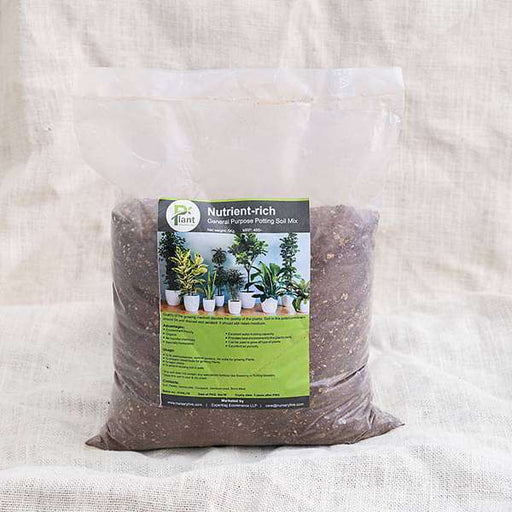
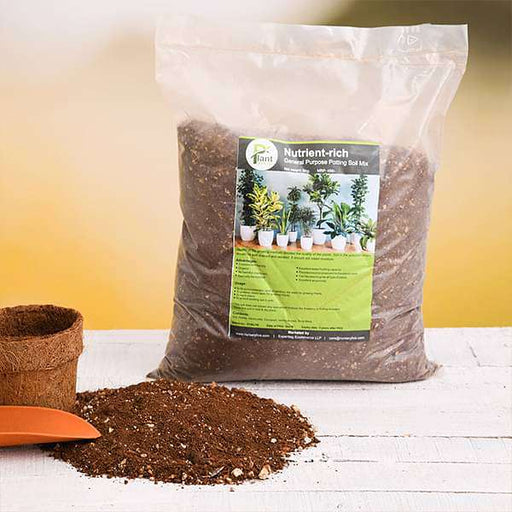 Save 34%
Save 34%
Nutrient-Rich General Purpose Potting Soil Mix - 5 kg Transform your gardening experience with our Nutrient-Rich General Purpose Potting S...
View full details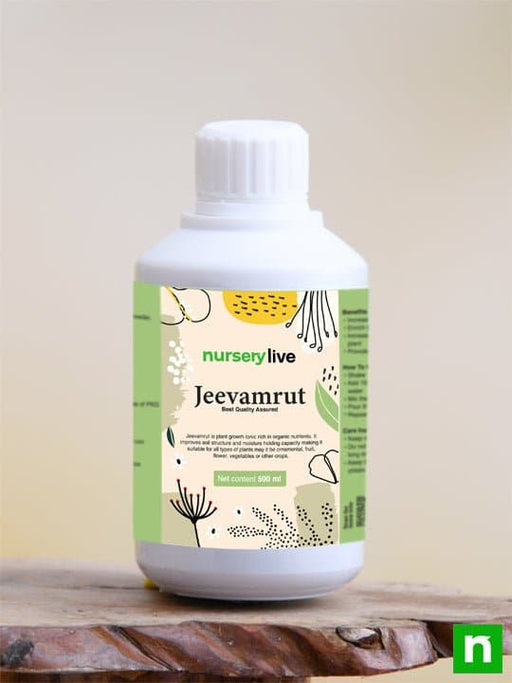
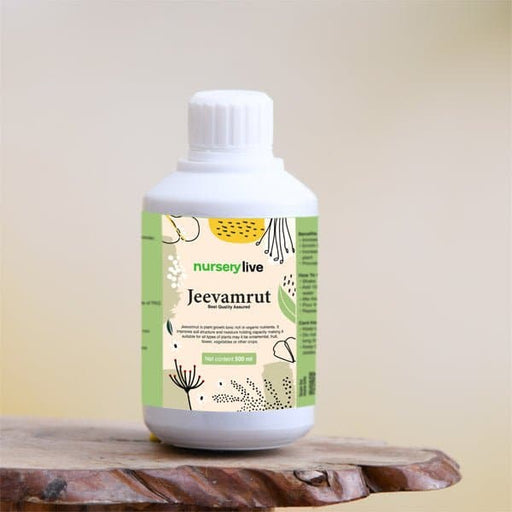 Save 19%
Save 19%
Jeevamrut (Plant Growth Tonic) - 500 ml Unlock the full potential of your plants with Jeevamrut, a premium plant growth tonic designed to ...
View full details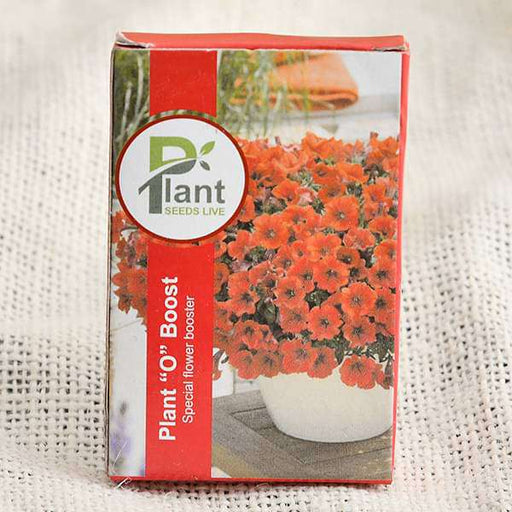
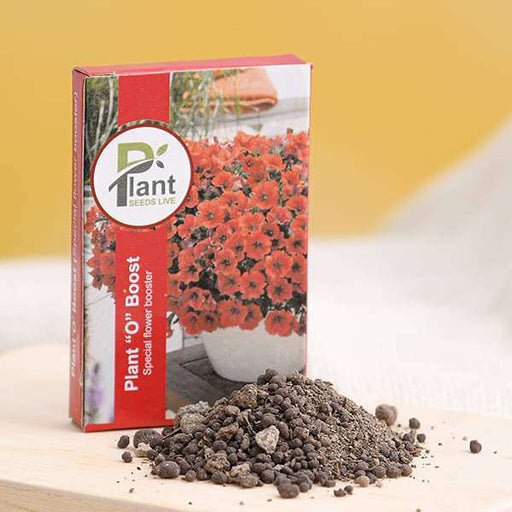 Save 20%
Save 20%
Plant O Boost (Special Flower Booster, 10 g) - Set of 10 Unlock the full potential of your garden with Plant O Boost, a premium special fl...
View full details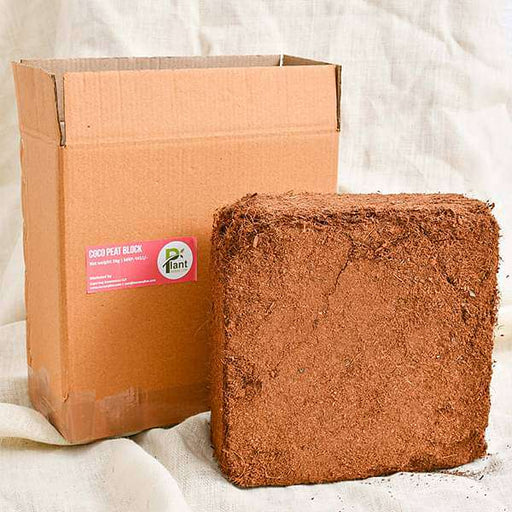
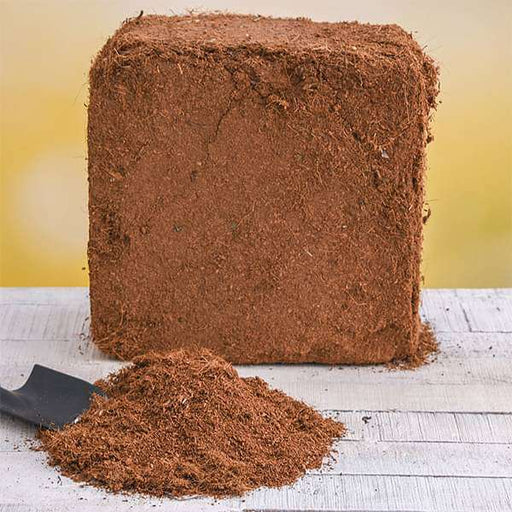 Save 8%
Save 8%
Coco Peat Block - 4 kg (Expands Up to 60 - 70 L) Transform your gardening experience with our premium Coco Peat Block, weighing 4 kg and c...
View full details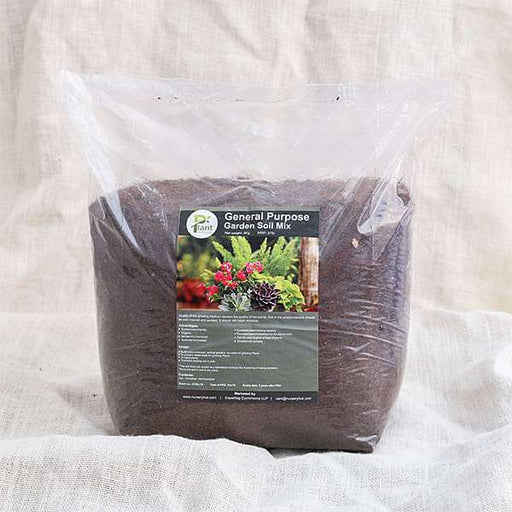
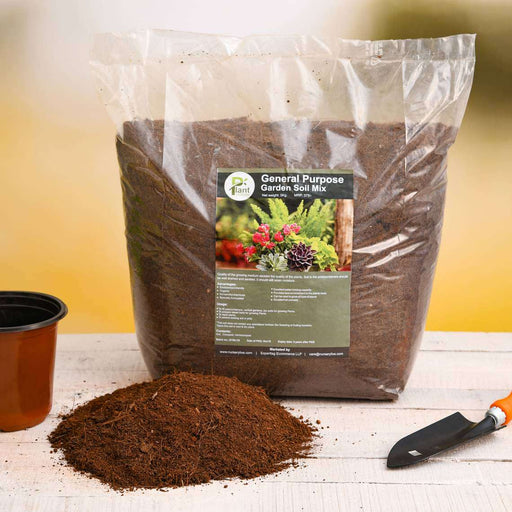 Save 31%
Save 31%
General Purpose Garden Potting Soil Mix - 5 kg Transform your gardening experience with our General Purpose Garden Potting Soil Mix. This ...
View full details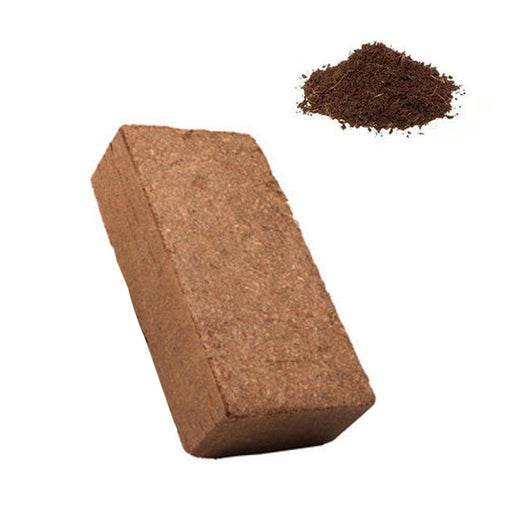 Save 20%
Save 20%
Coco Peat Block - 600 g (Expands Up to 5 - 8 L) Transform your gardening experience with our premium Coco Peat Block, weighing 600 grams a...
View full details
 Save 35%
Save 35%
Best 6 Plants for Perfect Indoor Garden Transform your living space into a lush oasis with our curated collection of the Best 6 Plants for a...
View full details
 Save up to 50%
Save up to 50%
Mini Succulent Garden Pack Transform your space with our Mini Succulent Garden Pack, featuring a delightful collection of 4 any variety beautiful s...
View full details
 Save 30%
Save 30%
5 Best Fragrant Plants Transform your garden or indoor space into a fragrant paradise with our curated selection of the 5 Best Fragrant Plants. Th...
View full details
 Save 24%
Save 24%
Set of 2 Bonsai Looking Grafted Adeniums Transform your indoor or outdoor space with our exquisite Set of 2 Bonsai Looking Grafted Adenium...
View full details Save 45%
Save 45%
Top 4 Die Hard Succulents Pack Transform your indoor or outdoor space with our Top 4 Die Hard Succulents Pack, featuring a curated selecti...
View full details
 Save 30%
Save 30%
5 Best Indoor Plants Pack Transform your living space into a lush oasis with our '5 Best Indoor Plants Pack.' This carefully curated collection fe...
View full details
 Save 25%
Save 25%
Set of 4 Evergreen Air Purifier Plant Pack Transform your indoor space into a lush, green oasis with our Set of 4 Evergreen Air Purifier Pla...
View full detailsAre you looking to give your plants the best possible growing environment? Look no further than our Soil Additives! Our soil additives have been carefully selected to provide the essential nutrients and minerals your plants need to thrive.
Our Soil Additives include a wide variety of options, from organic fertilizers and composts to soil conditioners and amendments. Whether you're a beginner or an experienced gardener, we have soil additives that are perfect for your needs.
If you're looking to improve the overall health and fertility of your soil, our Compost & Manure options are the perfect choice. Our options include vermicompost, cow manure, and mushroom compost, all of which are rich in organic matter and essential nutrients.
For those who want to provide their plants with targeted nutrition, our Organic Fertilizer options include a variety of plant-specific formulas, from vegetable and herb fertilizer to bloom booster fertilizer.
And for those who want to improve the structure and aeration of their soil, our Soil Conditioners options include products like Perlite and Coco Peat, which are perfect for improving drainage and reducing soil compaction.
If you're looking for soil additives that are perfect for specific types of plants, we have options for that too.
Our Acidifier options include products like Pine Bark and Sphagnum Peat Moss, which are perfect for plants that prefer a more acidic soil, like blueberries and azaleas.
And for those who want to improve the soil for succulents and cacti, our Cactus & Succulent Soil Mix includes a blend of sand, perlite, and coco peat, which are perfect for promoting good drainage and preventing root rot.
In addition to our soil additives, we also offer a wide range of gardening supplies, including seeds, pots, and gardening tools, to help you create the perfect garden.
Plus, our website offers a wealth of information and resources, from gardening tips and tricks to plant care guides and more, to help you become a master gardener.
At Nurserylive, we are committed to providing our customers with the highest quality plant products and gardening supplies, as well as exceptional customer service.
Whether you're a beginner or an experienced gardener, we're here to help you create the garden of your dreams. So why wait? Start shopping our Soil Additives today and give your plants the best possible growing environment!
Organic soil additives are a popular choice for gardeners and farmers alike. These additives are made from natural materials like compost, manure, and other plant-based products that help to enrich the soil and improve its overall health. Organic soil additives are a great way to improve soil structure and fertility while also reducing the need for chemical fertilizers and pesticides.
Soil conditioners are additives that help to improve the physical properties of soil, such as water retention, drainage, and aeration. They can be made from a variety of materials, including compost, peat moss, and vermiculite. By improving soil conditions, soil conditioners can help to create an optimal growing environment for plants.
Soil amendments are substances that are added to soil to improve its quality or fertility. They can include a variety of materials, such as compost, manure, and lime. Soil amendments can be used to correct nutrient deficiencies, adjust pH levels, or improve soil structure.
Nitrogen is an essential nutrient for plant growth, and nitrogen-rich soil additives can help to improve soil fertility and promote healthy plant growth. These additives can include materials like blood meal, feather meal, and fish meal. They can be especially helpful in gardens or fields where nitrogen levels are naturally low.
Phosphorus is another essential nutrient for plant growth, and phosphorus-rich soil additives can help to improve soil fertility and promote healthy root development. These additives can include materials like bone meal and rock phosphate.
Potassium is important for plant growth and can help to improve plant health and disease resistance. Potassium-rich soil additives can include materials like wood ash and kelp meal.
Lime soil additives can help to increase soil pH levels, making the soil less acidic. This can be helpful in areas where soil acidity is high and can help to improve nutrient uptake by plants. Lime soil additives can include materials like dolomite lime and agricultural lime.
Gypsum soil additives can help to improve soil structure and reduce soil compaction. They can also help to improve water infiltration and reduce soil erosion. Gypsum soil additives are often used in areas with heavy clay soils.
Compost soil additives are made from decomposed organic matter and can help to improve soil structure, increase nutrient levels, and promote healthy plant growth. They can be used in gardens or fields to improve soil quality and reduce the need for chemical fertilizers.
Manure soil additives are made from animal waste and can help to improve soil fertility and promote healthy plant growth. They can be used in gardens or fields to improve soil quality and reduce the need for chemical fertilizers.
Vermicompost soil additives are made from worm castings and can help to improve soil structure, increase nutrient levels, and promote healthy plant growth. They are often used in gardens or fields to improve soil quality and reduce the need for chemical fertilizers.
Biochar soil additives are made from charred plant material and can help to improve soil structure, increase nutrient levels, and promote healthy plant growth. They can also help to reduce greenhouse gas emissions by sequestering carbon in the soil.
Mycorrhizal soil additives contain beneficial fungi that can help to improve nutrient uptake by plants and promote healthy root development. They are often used in gardens or fields where soil quality is poor or where plants may be struggling to grow.
Seaweed soil additives are made from seaweed and can help to improve soil structure, increase nutrient levels, and promote healthy plant growth. They are rich in micronutrients like magnesium, calcium, and iron and can also help to improve soil fertility by increasing microbial activity.
Clay soil additives can help to improve soil structure, reduce soil compaction, and increase water retention. They can include materials like gypsum, sand, and organic matter. Clay soil additives are often used in areas where soil drainage is poor or where soils are naturally heavy and compact.
Perlite soil additives can help to improve soil structure and increase aeration. Perlite is a lightweight volcanic rock that is heated until it expands, creating a porous material that can hold water and air. Perlite soil additives are often used in container gardens or as a component in potting soil mixes.
Coconut coir soil additives are made from coconut fiber and can help to improve soil structure, increase water retention, and reduce soil compaction. They are often used as a substitute for peat moss, which is a non-renewable resource.
Slow-release soil additives can help to provide a steady supply of nutrients to plants over an extended period of time. They can include materials like bone meal, blood meal, and fish meal, which break down slowly over time, providing a steady source of nutrients for plants.
Liquid soil additives can be applied directly to plants or added to irrigation water to provide a quick source of nutrients. They can include materials like liquid seaweed, fish emulsion, and compost tea. Liquid soil additives are often used in hydroponic or container gardens where soil fertility may be more challenging to maintain.
Synthetic soil additives are made from chemical compounds and can be used to provide specific nutrients or to adjust soil pH levels. They can include materials like ammonium nitrate, superphosphate, and sulfur. Synthetic soil additives should be used with caution and only as directed, as they can be harmful to plants if overused.
Soil additives are substances added to the soil to improve its physical, chemical, or biological properties, enhancing plant growth, soil structure, and overall garden health. Examples include compost, manure, peat moss, and perlite.
Using soil additives can improve soil fertility, texture, aeration, water retention, and drainage, creating a more favorable environment for plants to thrive.
Organic soil additives are derived from natural sources like plants, animals, or minerals, while inorganic additives are synthetically produced or mined. Organic additives improve soil structure and fertility, while inorganic additives primarily improve aeration and drainage.
Compost is decomposed organic matter, rich in nutrients and beneficial microorganisms. It improves soil structure, fertility, and water retention, making it an essential additive for healthy plant growth.
Mix compost into the top few inches of soil, use it as a top dressing, or add it to planting holes when transplanting seedlings or plants.
Vermicompost is a nutrient-rich organic fertilizer produced by earthworms through the decomposition of organic waste. It is an excellent soil additive that improves soil structure, aeration, water retention, and fertility.
Manure is an organic soil additive that provides essential nutrients and organic matter to improve soil fertility, structure, and water-holding capacity. It also encourages beneficial soil organisms.
Peat moss is partially decomposed plant material harvested from peat bogs. It improves soil aeration, water retention, and acidity, making it an excellent additive for acid-loving plants like blueberries and azaleas.
Perlite is a lightweight volcanic rock that improves soil aeration and drainage. It is ideal for growing plants that require well-draining soil, such as succulents and cacti.
Coco peat is a byproduct of the coconut industry, made from the fibrous husk of the coconut. It is a sustainable alternative to peat moss, offering similar benefits like improved water retention, aeration, and soil structure.
Consider your soil type, existing nutrient levels, and the specific needs of your plants when selecting soil additives. A soil test can help determine which additives are most beneficial for your garden.
Yes, mixing different soil additives can create a well-balanced growing medium tailored to your plants' specific needs. For example, a mix of compost, coco peat, and perlite can create a nutrient-rich, well-draining soil mix.
Biochar is a carbon-rich, porous material produced from the pyrolysis of organic materials. It improves soil structure, water retention, nutrient availability, and supports beneficial soil organisms.
Green manure is a cover crop grown to be incorporated into the soil, adding organic matter and nutrients. It improves soil fertility and structure while preventing erosion and weed growth.
A soil test can help determine nutrient levels, pH, and soil texture, allowing you to identify which additives are necessary for your garden.
Lime is used to raise the pH of acidic soils, improving nutrient availability and promoting healthy plant growth. It also improves soil structure by breaking down heavy clay soils.
Lime can be applied as a powder, granules, or pellets. To determine the correct application rate, conduct a soil test to measure the soil's pH level. Follow the recommendations and evenly spread the lime over your garden, then water it in.
Gypsum is a calcium sulfate mineral that helps to improve soil structure, especially in heavy clay soils. It can also provide a source of calcium and sulfur for plants. Apply gypsum when your soil test indicates a need for these nutrients or to improve the texture of clay soil.
Mycorrhizal fungi form a symbiotic relationship with plant roots, enhancing nutrient and water uptake. They improve plant health, increase stress resistance, and boost overall garden productivity.
At NurseryLive, we offer a wide range of organic and inorganic soil additives to help you improve your garden's soil health. Visit our website to explore our selection and enhance your garden's growth and productivity.